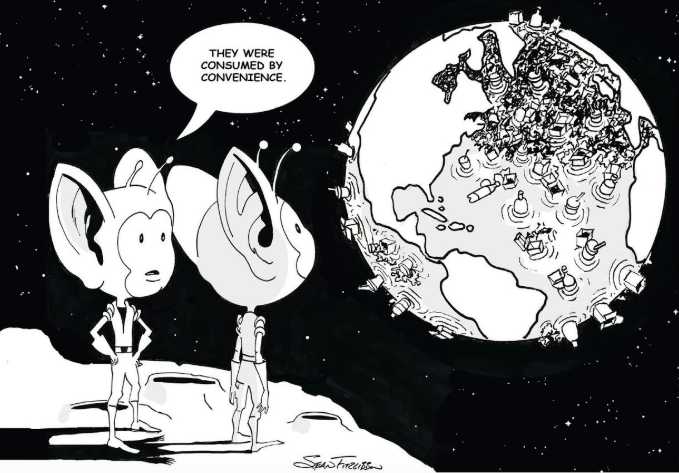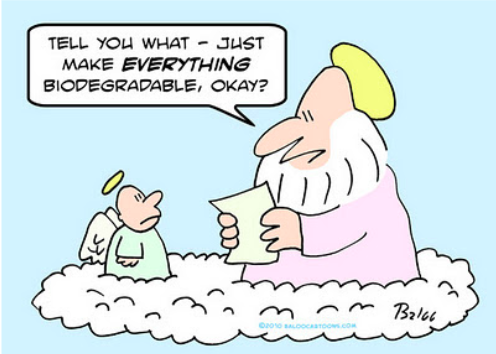Waste
'Waste' Bible Study - Part of the 'Rich Living' series of studies published by A Rocha Aotearoa NZ
Download HERE (via their website)
Download HERE (via their website)
|
A 'Throw Away' Prayer
Lord, we have learned to throw things away to drop in the bin anything we no longer want. A truck comes and takes it away, so easy, so convenient, not my problem. Lord, we confess that all we have is yours everything we hold has come from your creation and returns to your earth. In you, nothing is thrown away. Each person is treasured, every living creature, and every thing made with human hands from the wealth of the earth. Lord, we commit ourselves to live well in your Creation, our lives in your cycles of grace, our choices inspiring others, our actions revealing your generosity and justice. Lord, in your mercy, forgive us. In your power invigorate us. In your loving kindness restore us to harmony, to hope, to you, that the whole earth may live to praise your name through Jesus Christ our Lord and saviour Amen. |
|
Comment: Ruth Valero
The average person throws away their body weight in waste every three months. We can easily feel that this rubbish has disappeared and we need no longer think about it. But this could not be further from the truth: there is no such thing as throwing our rubbish away. To reduce, re-use and recycle is our responsibility, and part of how we take care of God’s creation. After all, there is no such thing as waste in nature – the output from one organism is the input for another. |
Comment: Simon Kingham
Why do the poor suffer from the rubbish of the rich? “Hands up who wants a landfill or contaminated waste site just round the corner from where they live?” Not a lot of hands up I imagine. Nobody wants to live near rubbish tips, or coal or nuclear power stations, large polluting factories, or even right on a busy main road. But as we need power and transport, and produce rubbish, someone has to. And the research shows that invariably it is the poor, and marginalised who tend to. So why? It really comes down to money, power and influence. Firstly poorer people tend to live on the cheaper less valuable land. But it is more than this; and this is where power and influence come in. Wealthier, more educated people are able to influence decisions more. They hold power, or know people who hold power. They can afford to pay for lawyers, planners and researchers and push their case. They have the power to stop rubbish being ‘dumped’ in their communities. And where does it end up, in areas where poor, less educated people live. This is sometime referred to as Environmental Justice (or injustice), and is another example of how bad stuff keeps happening to poor people. |
The Bible on rubbish
The word ‘rubbish’ can be found four times in the Bible (NRSV, other translations use similar words such as ‘rubble’ or ‘garbage’).
The word ‘rubbish’ can be found four times in the Bible (NRSV, other translations use similar words such as ‘rubble’ or ‘garbage’).
|
Read: Nehemiah 4
Nehemiah is organising the rebuilding of the wall of Jerusalem. He is doing well against the odds, with a huge willingness from his people to get stuck in. However, there is a problem, which causes their enemies to poke fun at them: there are piles of rubbish in the way. Discuss: 1. What was it like for the returning exiles? Try to picture the conditions that the people were working in, the constant threat of attack, and the blackened rubble cluttering their rebuild efforts. 2. How might they have felt emotionally about the burned remains of their temple? 3. What was required of them? 4. Try putting the song in verse 10 to music. a. Can you relate to having to clear away rubbish from the past? How are you doing this (either literally or symbolically) … in your personal life? in your church? |
Read: Lamentations 3:31-58
Lamentations is a cry of despair after national disaster. The people are defeated and enslaved. They have lost everything. In their lament they feel like trash, “filth and rubbish among the nations”, or in the Good News Bible, “the garbage dump of the world” (Lam 3:45). Discuss: 1. Who are the people who are the ‘garbage dump of the world’ in our times? What is life like for them? 2. Have you ever felt like you were ‘filth and rubbish’ in the eyes of others? 3. Lamentations 3 is considered to be one of the Old Testament prophecies of the death and resurrection of Jesus. Read it with the cross in mind. How did Jesus become ‘rubbish’ for us? The apostle Paul picks up a similar theme in 1 Corinthians 4:13. Do you think that Christians are sometimes seen in this way? |
Read: Philippians 3:1-11
Paul confronts head-on the values of the church in Philippi. They want to be respected and be seen to be doing all the right things. ‘It’s all nothing compared to Christ’, writes Paul. ‘In fact, it’s all rubbish!’ The word he uses in verse 8 is a swear-word for excrement. The Message translation:
“Yes, all the things I once thought were so important are gone from my life. Compared to the high privilege of knowing Christ Jesus as my Master, firsthand, everything I once thought I had going for me is insignificant—dog dung. I’ve dumped it all in the trash so that I could embrace Christ and be embraced by him” (The Message)
Discuss:
1. How do you decide what is rubbish and what has value? When does your family disagree about what to keep and what to throw away?
2. Does Paul mean that all we should care about is our spiritual lives? Is he saying that he sees the natural environment as rubbish, or should be treated as rubbish?
Paul confronts head-on the values of the church in Philippi. They want to be respected and be seen to be doing all the right things. ‘It’s all nothing compared to Christ’, writes Paul. ‘In fact, it’s all rubbish!’ The word he uses in verse 8 is a swear-word for excrement. The Message translation:
“Yes, all the things I once thought were so important are gone from my life. Compared to the high privilege of knowing Christ Jesus as my Master, firsthand, everything I once thought I had going for me is insignificant—dog dung. I’ve dumped it all in the trash so that I could embrace Christ and be embraced by him” (The Message)
Discuss:
1. How do you decide what is rubbish and what has value? When does your family disagree about what to keep and what to throw away?
2. Does Paul mean that all we should care about is our spiritual lives? Is he saying that he sees the natural environment as rubbish, or should be treated as rubbish?
|
Read: Psalm 148
In the Bible we are told that every tree, every rock, every creature returns to God its song of praise. All creation glories God! When humans spew toxins into the air and water, and when we cover the ground with our waste, we are silencing the song of creation. How can a turtle praise the Lord when its stomach is full of plastic? How can a river praise the Lord when it is sluggish with trash? Our worship of God is weakened when Creation is choking on our rubbish. Pray: for the song of praise of all Creation Listen for the voice of the birds, the animals, and the earth itself, giving glory to their Creator. Write and share your own prayers of praise, confession and commitment. |
Comment: Waveney Warth
My husband and I have been living (or trying to live!) zero waste for over a decade. We believe this is one of the most powerful, transformative actions we can take to foster a flourishing future. The key to understanding the of impact zero waste lies in understanding the foundational problem of waste. Avoiding waste isn’t just avoiding landfills, leachate, methane, litter, and crisis of plastic and micro plastics in the marine and terrestrial environments. Avoiding waste is the key to reducing or completely eliminating the environmental cost of felling forests, mining, oil extraction, cotton farming etc. which together drive climate change, environmental degradation, biodiversity loss, and use of toxic chemicals. Waste isn’t just a sector, its sum total of the entire byproduct of industrial processes. When we avoid waste we are actually redesigning the global economy from linear (extract-use-throw) to circular (repurpose-use-repeat). |

